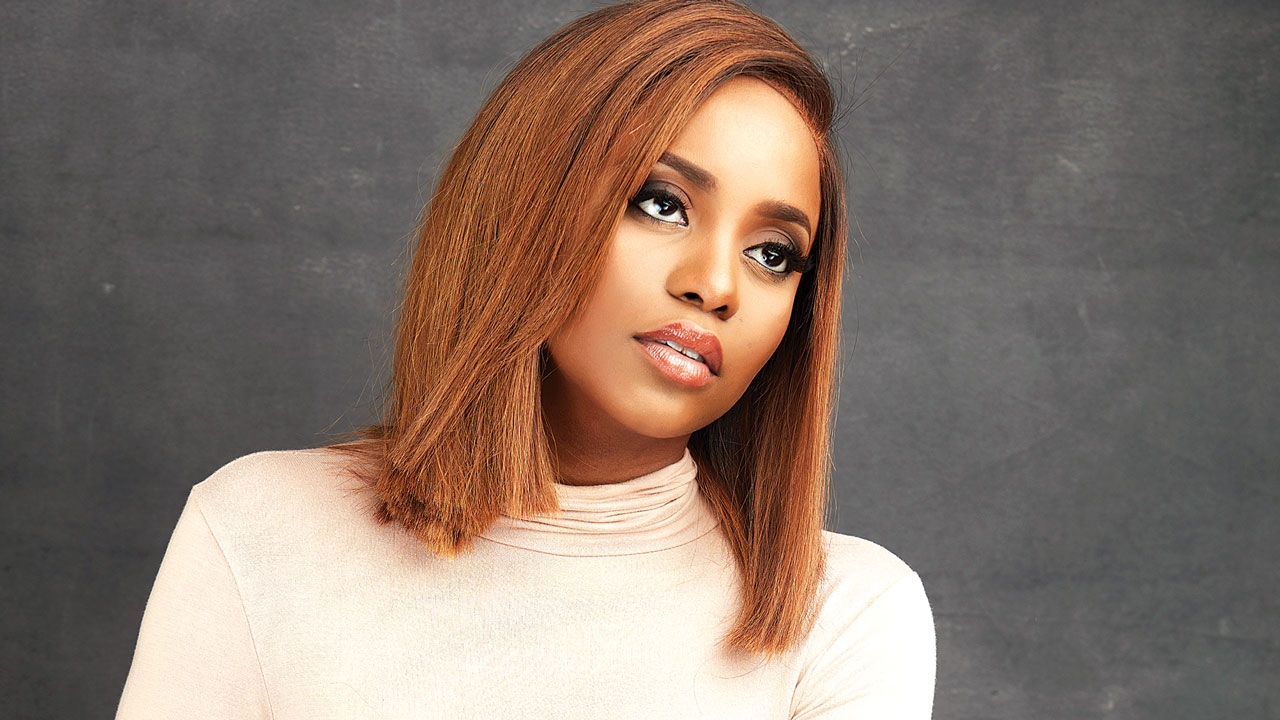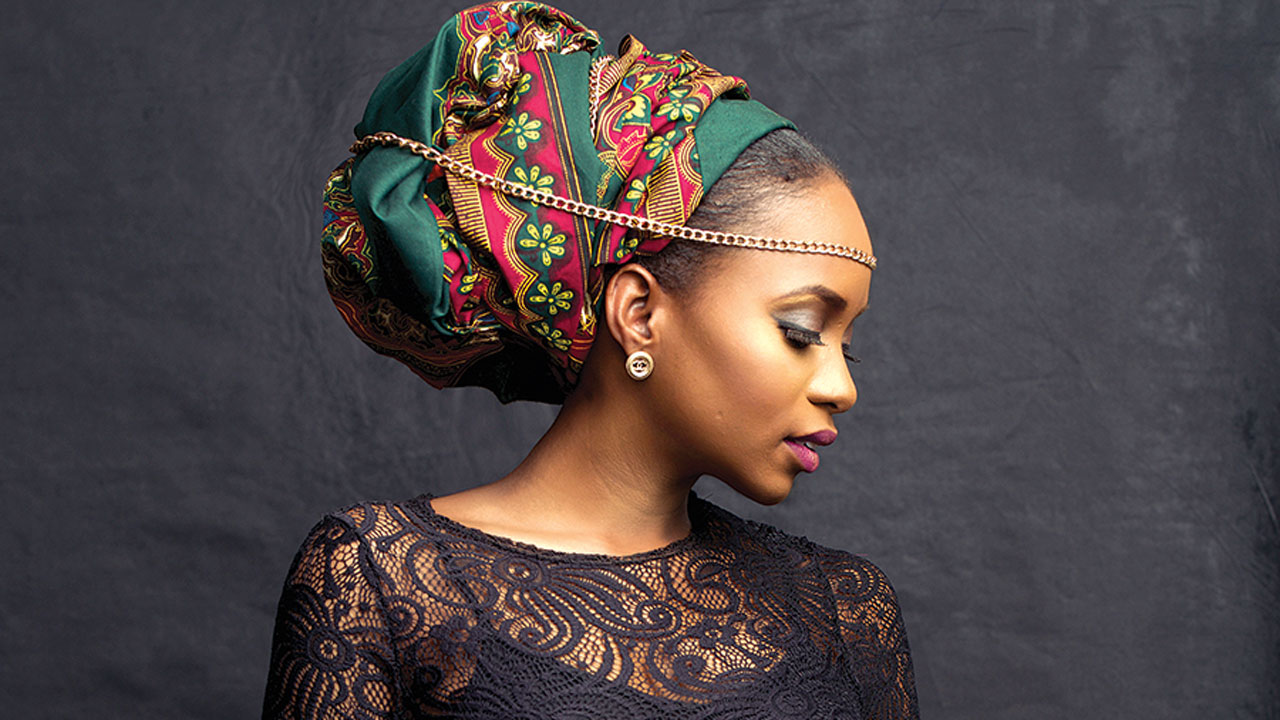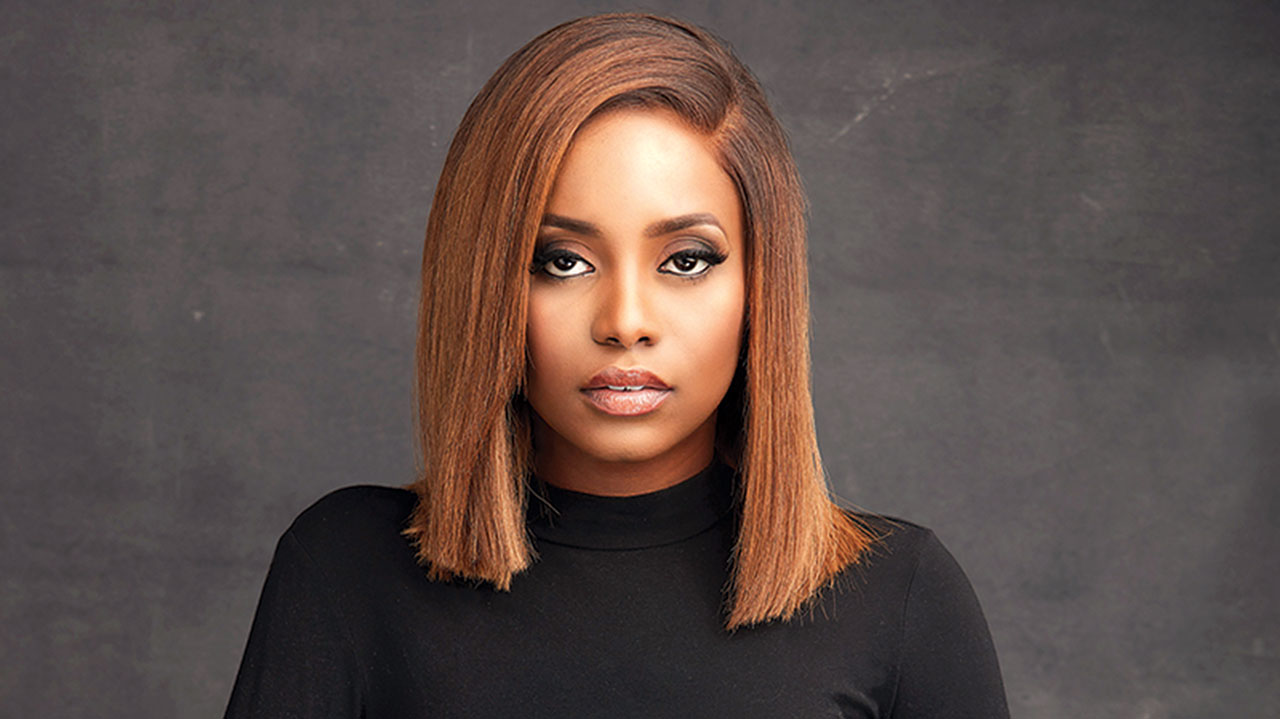
‘My Generation Is Getting To Create Our Own Brands And Identities, We’re Creating The New Normal’
At barely 5’1, she’s petite, slight of frame, and just 24 years old. Yet there is nothing small about Kiki Osinbajo’s goals and her determination to execute them. People may refer to her as the daughter of the nation’s Vice President, but the young CEO of the beauty company, Glam’d Africa, is a woman with a determined spirit and a clear vision for what she wants to achieve as a budding entrepreneur. Glam’d Africa is the umbrella company under which she intends to pave her way and leave her unique mark in the continually growing beauty industry. This weekend in Abuja, Osinbajo launched just one of the company’s businesses, the beauty house concession based facility, Glam’d Africa Beauty House, a one-stop venue for all things beauty related, clothing, accessories, skincare, hair products, makeup and a nail salon.
After graduating with a degree in Business Management from Aston University in 2016, Osinbajo returned to Nigeria from the UK because she couldn’t imagine living anywhere else. She believed there were opportunities at home that could help the growing and necessary new narrative of a flourishing and capable Africa able to compete on a global platform and in a global market with its own stories, people and businesses. Helping to develop her own country has been her primary motivation and the reason behind her newest venture, Glam’d Africa, a business with the goal to not only connect, train and empower practitioners in the beauty industry, but to also expand consumer choices by promoting locally made products. She spoke with ENUMA OKORO about her passion and her work
Congratulations on your business and the launch of your beauty house. Who is the young woman behind Glam’d Africa? Who is Kiki Osinbajo?
That’s a question with several answers. The funny thing as it relates to my work is that, because I’m such a shy person, people don’t realise how driven I am and willing to push myself to accomplish whatever I set my mind to. If I believe in something I will go for it 100 per cent. But there’s another side to me as well. I am very family-oriented. One of the main reasons I came back to Nigeria was because I love our family centered culture. England was a good experience of a different way of life but home is home. I could only imagine starting my first business surrounded by people I love and trust and where I have a strong support system.
[ad]
Your business is in the beauty industry and there are many characteristics of beauty. Who do you hold up as a beautiful woman in your life?
That’s an easy one. My mother. She has a beautiful spirit that has made such an impact on me. Besides her endless support, I’m still learning from her. The level of patience she exudes and the way she seeks to understand people and different situations are beautiful characteristics to me. They are also very useful traits to have in running a business.
At 24 years people might be tempted to say you should still be figuring out what you want to do with your life, maybe thinking about more schooling before deciding the industry you want to commit to. What would you say to such inquiries?
I’ve known for a long time that I’m passionate about the beauty industry and it’s important to explore the things that stir you to work hard. Starting this business has been a lot of work but I don’t mind it because I’m doing what I love. I’ve always had an entrepreneurial spirit. I remember when I was 15 and I tried my hand for the first time at a business. I had traveled with my family to the Philippines and noticed the fashion jewellery there was unlike anything I could find in Nigeria. So I asked my dad to lend me some money and I would pay him back in two weeks flat. In fact, we drew up a contract on a tissue and we both signed it. I used the money to buy jewellery and intended to sell it when I got back to Nigeria. When I got back home I showed my aunties and I’m not sure if they liked it, but they bought it all. I gave my dad his money back and told him, “So next time when I ask you for a bigger loan, you will know that I will pay you back when I say I will.” It wasn’t exactly a sustainable business but I had the mind to take a shot even then, and it taught me something, to believe in myself.
It sounds like your parents encourage you to follow your heart. What reaction did you get from family when you first shared your vision for starting a beauty company?
I studied law and business management. Though I found it interesting, I didn’t feel passionate about it like I was about fashion and the beauty industry. My dad knew I wasn’t going to practice law. He still teases me about it. Every now and then I hear, “My daughter studied law but doesn’t want to practice.” But he supports my determination. My father is a very dedicated person. I like to think I inherited that trait. He raised my siblings and me to believe that we could do anything. From the time we were much younger till now, whenever we would try something he would always say, “Good, but you can do it bigger.” I can’t help but learn from watching him. As for my mother, half the time I was the one worried and coming up with all the “What ifs?” Finally she just said to me, ‘Look if you keep saying ‘what if’ it’s not going to happen.’ I’ll admit, initially I was scared even though I didn’t tell anyone that flat out. But the support of my parents and family has enabled me, and even emboldened me. I remember the day I was going to actually start implementing my business plan, a friend who is like a brother to me called and said, “Are you sure you want to do this? There will be a lot of work and so many people to deal with.” At that point I was determined to give it my all and I told him that I didn’t want anybody trying to talk me out of this. I knew it would be a lot of hard work but I was ready.
Well, you are doing it. You are providing a service to your customers and creating spaces to encourage and train more people for the beauty industry. In your mind, who is the ideal Glam’d Africa customer?
Everyone understands beauty differently and chooses to present themselves, as it fits their personality. I want my business to provide something for everyone, whether you love makeup or getting your nails done or just dressing well. The beauty house carries merchandise from local designers and businesses and more globally recognised brands. We want women to be able to define their own style. I never really wore makeup till I got to university. I remember my best friend had some compact powder and I had foundation liquid so we were like, ‘Look, between the two of us we can make this work.’ Now that I wear makeup regularly I use a mix of different brands. I may use a Mac foundation and Tara lipstick and highlighter. This translates to one of the ways I think about what Glam’d Africa offers, providing a range of quality products and services for customers.
The beauty industry is an extremely lucrative field all over world and Nigeria is no exception. With our population growth projections, the majority of young people and the growing middle class, the market for beauty and wellness products will continue to rise. Yet we already have brand leaders like House of Tara and BMPRO. When joining this industry how do you consider the work of these pioneers and their large platforms?
Women will always purchase health and beauty products on a varied price scale. So yes, there will always be a market. Many people fail to understand what a serious business industry beauty is. Pioneers like the ones you mentioned are serious businesswomen who gave young women like myself an avenue.
[ad]
They took a chance in an industry that was untapped and had little relevance at that time and they built their businesses into beauty empires in Nigeria. Now women entrepreneurs like myself have role models in the industry that we can look up to and say, “I want to succeed like House of Tara, or like BMPRO.” When they were coming up they didn’t necessarily have those people locally that they could turn to and say ‘I want to emulate that.’ We have that opportunity because of them and at Glam’d Africa I want to ensure that my generation continues to benefit from these stories of success, learning from the challenges as well as the achievements. We’ve created a ‘Day in the Life’ series that will focus on the stories of different industry professionals so that others can learn from them and be encouraged.
Speaking of your generation of entrepreneurs, it’s wonderful to have mentors and role models but to start a business you have to believe you have your own value to add to the market and the industry. How do you think you and your generation can enhance or take the beauty industry further? In other words, what is it about today’s market and cultural context that gives a younger generation some new tools or perspectives to bring to the table?
I read something recently that said, ‘The jobs that people in this generation are getting have not been invented yet.’ I don’t now where I saw that but it stuck with me because it means my generation is setting its own path in a way. I know I still have a lot to learn but the truth is also that there are so many young people with great ideas, like from Snapchat to Instagram, which no one had thought of before. My generation is getting to create our own brands and identities. In a sense we are creating the new normal. We are bringing a new spirit, increased diversity and radical creativity into the marketplace. We are doing it and we are doing it well, and with this comes new job roles. Some of my friends are doing such creative and interesting things and when we see that with one another it just encourages your own ambition and drive to also add value in creative ways. I started Glam’d Africa because I wanted to create the beauty customer experience I myself was looking for. I’ve never been able to shop in one place. I’ve always had to pull from here and there to make a great outfit or to find the right beauty tools. So I was always thinking of how to get all these aspects of a great look together, from hair and nails to makeup and clothing, to be able to do everything in one place. The beauty house under Glam’d Africa aspires to meet that need.

But Glam’d Africa is about more than making a profit and a customer experience. I know you’ve already started your free training programs to support and empower young people who are interested in the industry. Can you tell us more about that?
Yes, this is actually one of my favourite parts of what we’re doing. We have a program called Glam’d Trains which provides free basic beauty services training. We did one earlier this year for residents of Abuja interested in becoming nail technicians. Two of the trainees eventually went back to university and actually called me to say thank you because they were now making extra money in school. Another trainee sent me a message to ask if she could come back and work as an intern at the nail bar we just opened called Nailed It. She wanted to learn more and become a professional. She’s with us now. We will continue to provide educational opportunities with professional master classes and tutorials. Nigeria has a big market for makeup artists and beauty technicians. A part of our facilities include an affordable co-working space for makeup artists who can’t afford to rent a private office or salon space. We try to empower women and men in a few different ways but, at the end of the day, it is a way of giving us an avenue to help people learn new skill sets or to discover new vocational interests. It’s also pushing the work of those behind the local brands we carry, helping to turn the ‘Made in Nigeria’ movement into more of a lifestyle. Nigerians as a whole are doing amazing things. It’s so rewarding to see people producing quality merchandise. I want to support that and promote it. We shouldn’t buy things just because they are made in Nigeria and it fits a hashtag. We should buy them because we recognize that these ‘Made in Nigeria’ products are good quality products.
[ad]
What have been some of your challenges and how have you addressed them?
There were a few notable challenges from setting up the actual business, restructuring the building and getting people with different personalities and ideas to try and work well together. But, surprisingly, one of the biggest challenges was actually sorting through all the advice people wanted to give me. Everyone had an opinion about the best way to do things. I know each person had my best interest at heart but at some point I felt like I was losing my own vision and dream for what I had in mind. I actually thought about stopping the whole thing, but then I realized I just had to learn to use my voice and to speak up while also being respectful of different ideas. I feel like I can look at what I’ve accomplished so far and be proud of myself.
What advise would you give young women who have an unconventional business idea or who want to pursue a career different from what most Nigerian parents push for, like the standard doctor, lawyer, or accountant?
There are so many possibilities these days for successful creative jobs that don’t fit a mold. But I would say study, believe and plan. If people have tried the same business before you, study them, where they failed and where they succeeded, and study the market. Then believe in yourself, that you are capable of achieving your goals no matter what people say. Finally and equally important is to plan. Plan, plan, plan, and plan again. Be ready to compromise because when you have a dream you also have an idea in your head of how exactly it is supposed to go, but it may not end up happening exactly the way you imagined. If you get too disappointed when a revised plan is needed then you can lose your drive and momentum. So be ready for necessary changes. Remind yourself that what you are doing is still great and worthwhile.
These days social media followers are a sort of currency. You have close to 25K followers on Instagram, many of them girls and young women. If they were all going to read this, what would you want to say to them?
You know, I get loads of messages that are not only sweet, but also incredibly encouraging and that challenge me to be more. Sometimes I read the messages and I want to be who these young women are telling me that they think I already am. They actually give me the support I sometimes need and the fact that they believe so much in me makes me feel that maybe I am doing something right after all. They make me believe more in what I am doing and in who I am as person. So honestly, what I would want to say the most to people is a big “Thank You.”



